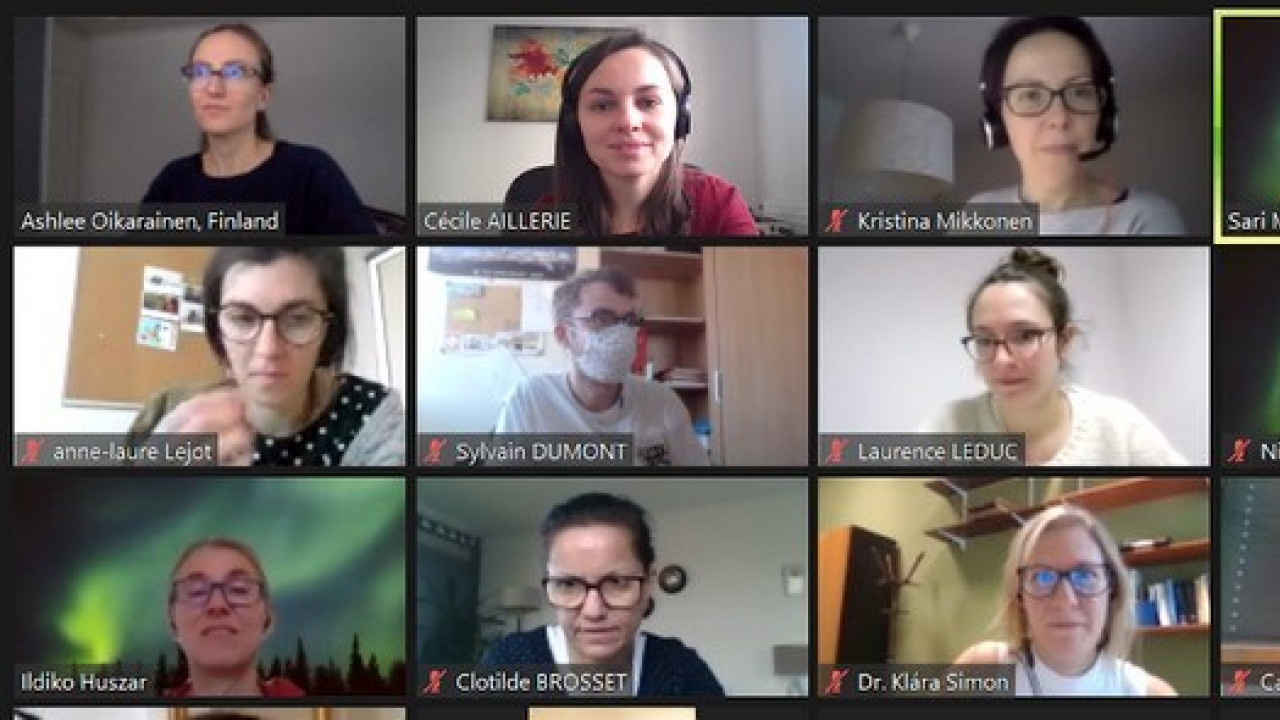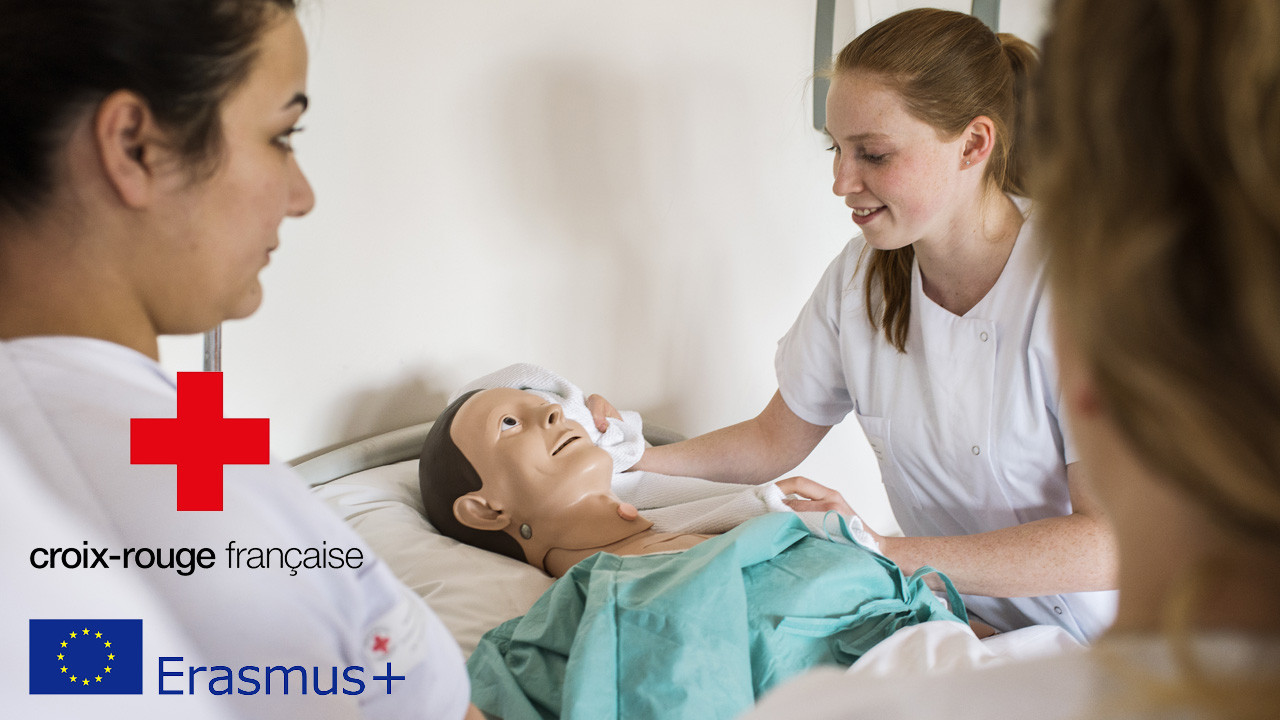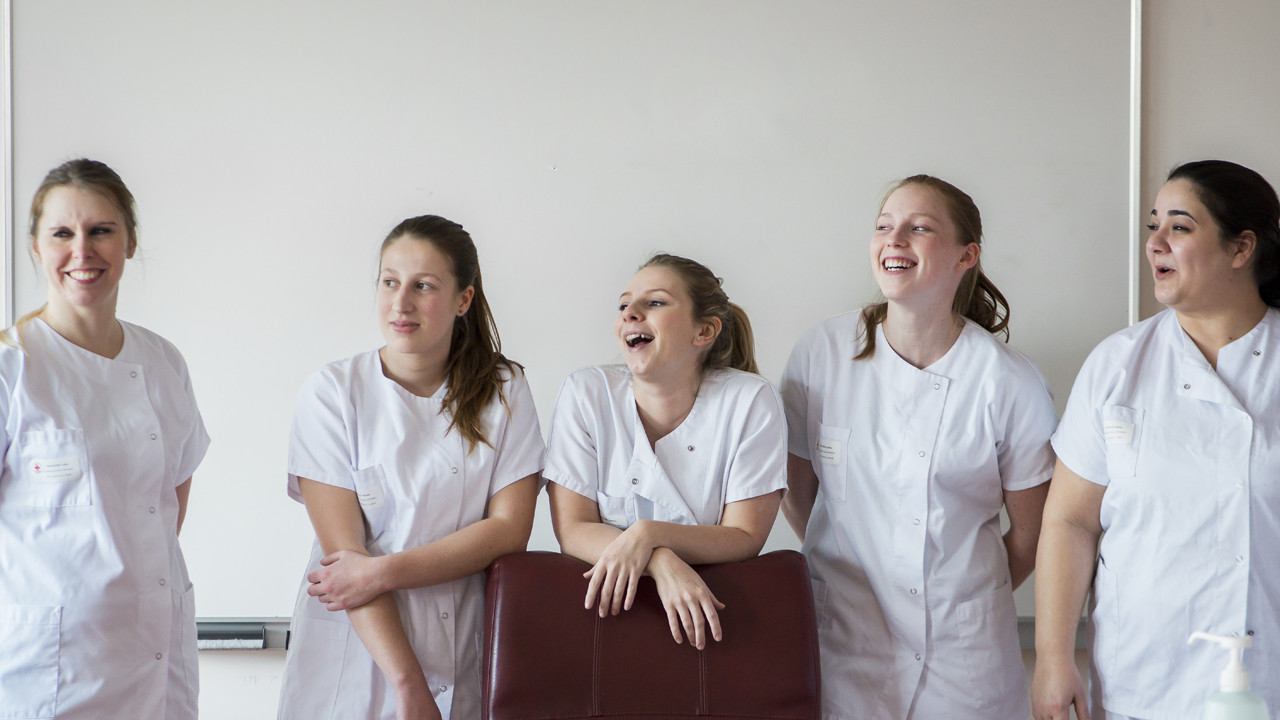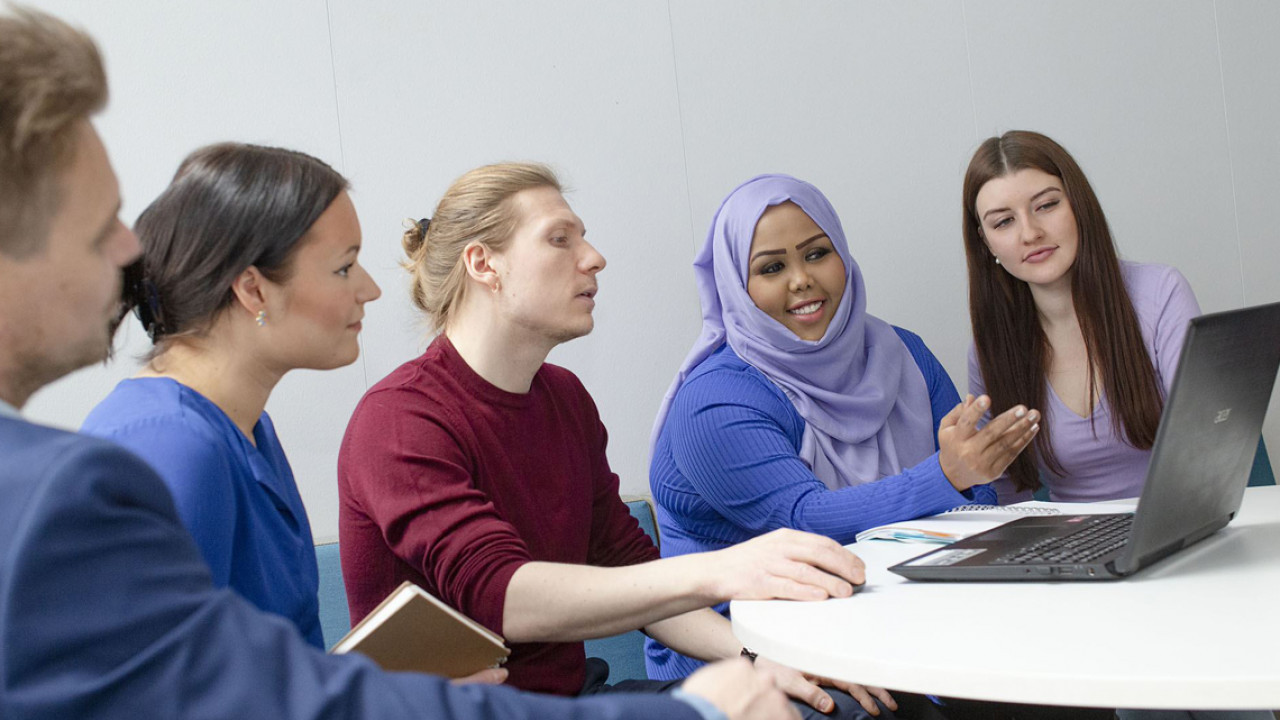Interculturality in Care – Developing international nursing students’ clinical placement through an Erasmus+ project

Training activity around mentoring and integration of culturally diverse nursing students
Clinical placements play an essential role in nursing education and clinical environments are becoming increasingly multicultural. It is therefore important to focus educational interventions on better integration into the clinical environment and developing intercultural competencies. To launch our Erasmus+ project for innovation and exchange of good practices, a Training Activity on how to develop the mentoring and integration of nursing students from another culture into a clinical environment was organised online coordinated by Laurea University of Applied Sciences.
On the first day of the Training Activity, the participants gathered to discuss the current situation in their countries and organisations. The objective was also to identify training needs, existing good practices and possible concerns in each country, which was done by creating a teamwork activity around these topics in the first workshop for later use in the project.
On the second training day, the participants had the great pleasure to familiarise themselves with the research findings of professor Kristina Mikkonen and researcher Ashlee Oikarainen from the University of Oulu in Finland. They shared their profound knowledge of the integration of culturally and linguistically diverse nursing students into healthcare organisations as well as their brilliant expertise in cultural competence education for mentors with the participants.
Later in the afternoon on the second training day, the participants had a change to have a workshop on professional language skills for nursing with researcher Inkeri Lehtimaja who provided them with useful tips and recommendations on how to support the students’ foreign language learning during training.
On the third day, there was an interesting opportunity to retrace an Erasmus student’s internship path in the clinical environment of the project coordinator IRFSS AuRA in France, during which the participants could experience through many testimonies how rewarding it can be to have an international trainee on the ward, both from the professionals’ and patients’ perspectives.
Mutual understanding and enriching experiences
On the fourth training day, the participants became familiar with the Hungarian partners, the University of Pécs and PhD Orsolya Máté’s studies on transcultural nursing as well as PhD Klára Simon’s case studies on communicational incidents in health care. The participants could find many similarities in their countries regarding the minorities in health care, such as challenges in communication due to the respect for the elderly and traditional gender roles as well as different health practices that could be avoided by developing mutual understanding.
On the last training day, the participants could travel virtually to Spain to meet several healthcare professionals from the University of Lleida and listen to their testimonies. Near their Igualada campus, there is a very modern 4D Health Innovation Simulation Center, where students can become familiar with clinical practices in a real clinical environment. One of the advantages of this simulation center is that all the situations where actors play the patients’ roles can be recorded and analysed afterwards by students and teachers. The day was a perfect way to conclude the project’s first training activity, which served as a very important starting point for the intellectual outputs and provided the project partners with evidence-based material for their future work.
Language barriers were discussed on many occasions during the training activity, but it was also found that international students often become very close to the patients, which reveals that there are of course more dimensions in communication than just the spoken language. Clinical mentors often found that they learned not just new practices from the international student, but also that they were able to see their own practices and work from a different valuable perspective, and even step out from the healthcare framework they had built around themselves. A very enriching experience in any profession!




